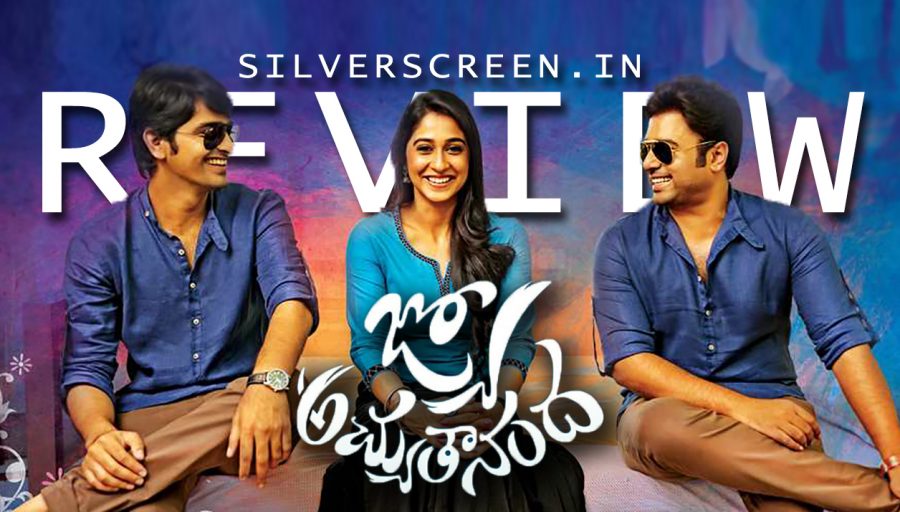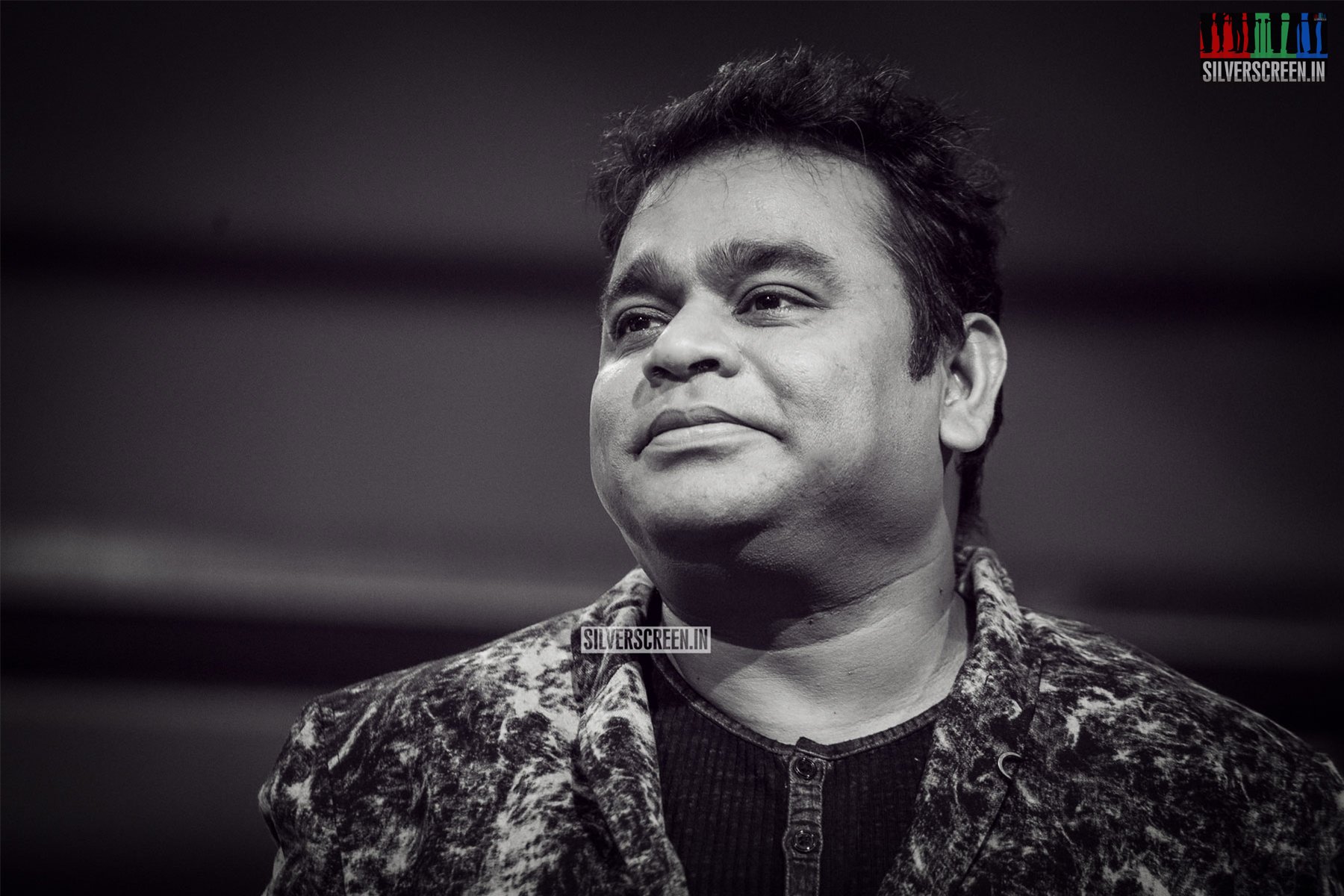A love triangle is indicated when poster after poster of Srinivas Avasarala’s Jyo Achyuthananda shows two men and a woman: drinking hot beverages, strolling around together, smiling into the camera. The trailer has a lot more of this, plus a light romantic track.
But there is so much more to Jyo Achyuthananda than a love triangle formula.
The scenes are staged, the performances can be a little over-the-top at times, and the characters habitually deliver one-liners and puns like it was expected of them. But the audience plays along. Because that’s how compelling the mood of the film is: witty, at times silly. And most of all, taking us on a familiar and endearing journey – that of two siblings. Jyo Achyuthananda is easily one of the most bromantic films to have released in a while.
*****
Stories of sibling rivalry are, of course, a near-inexhaustible source of relatable amusement (whether one has a sibling or not). Here, the film begins with a family photo session. The mother laments over her husband’s death and says, “How I wish he was here.” The older daughter-in-law patronises the younger. The brothers don’t want to stand too close to each other.
Then the title credits roll out, and popular late ‘90s and early 2000s songs play in the background, and time rolls back for the audience. Two brothers, Achyuth (Nara Rohith) and Anand (Naga Shaurya), live in a typical middle-class household with their parents. They share cigarettes, ride their father’s bike whenever they can, and do almost everything together.
They’re having so much fun. What could possible go wrong?
Enter ‘Jyo’ Jyothsna (Regina Cassandra). This girl is intelligent, charming, and has just moved into the house upstairs. As expected, the love triangle unfolds. How this impacts the life of the brothers, after all these years, is the story.
*****
Despite its significance, the initial love story remains at the level of a sub-plot. Jyo doesn’t reciprocate their feelings, and a twist in the tale changes the trio’s equation.
The effects of their relationship with Jyo lingers though, and changes them as people. Their rivalry becomes a constant, set so naturally that it feels like it could have happened to any of us. Achyuth calls himself ‘Dharmaraja’ and his brother ‘Dussasana’. Anand does the same, except the names are ‘Lakshman’ and ‘Raavana’. Achyuth is financially more stable than Anand, and exudes condescension towards his brother because of it. Anand claims that their deceased father liked him (Anand) more, and takes possession of the father’s everyday belongings, much to Achyuth’s annoyance.
*****
What’s so special about the characters is the way they’re presented – just as they are, without judgement. At one point, Jyothsna sounds conniving, Achyuth looks greedy, and Anand comes across as meek. Everyone is flawed and open about it.
In one particularly well-written and enacted scene, Anand, who has struggled to come to terms with his brother’s lack of empathy, finally confronts him about his hostility. Achyuth openly replies, “Nenu inthey” (I’m just this). He says can care only for himself and his wife. It might make him sound like a cold-hearted villain, but the audience knows it’s the inevitable outcome of the constant power play between them.
*****
Naga Shaurya, as the younger brother living in the shadow of the older one, is exemplary. He began his career in Srinivas Avasarala’s Oohalu Gusagusalade as an ambitious youngster in love, but then picked films that didn’t give his abilities the right platform. In Jyo, his performance is mature, and highly relatable for any younger sibling.
While Regina’s role is unusual and interesting, when her character Jyothsna goes astray in the second half, it leaves us momentarily clueless about her purpose in the overall arc of the film.
*****
Recommended
The movie really belongs to director Srinivas Avasarala, who returns to the style of humour he had introduced us to in Oohalu Gusagusalade – slapstick, full of puns, heavily reliant on dialogue. The narrative also oscillates between characters as in Oohalu. In Jyo, nearly 20 minutes of the film has scenes narrated by the brothers. They each tell the same story, but replace the characters as per their own wises.
This brand of comedy is a relief from the insult-based, borderline-offensive humour that has become so prevalent. Srinivas intelligently interlaces situational comedy with complex emotions to deliver a non-preachy film.
At the end, you’re left wanting to hug your sibling. For no reason at all.
*****
The Jyo Achyuthananda review is a Silverscreen original article. It was not paid for or commissioned by anyone associated with the movie. Silverscreen.in and its writers do not have any commercial relationship with movies that are reviewed on the site.



